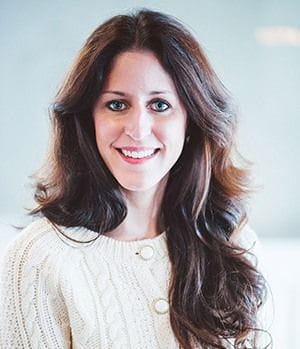
It was a new church, but an old message — or so I thought.
As a long time Christian, I have a radar for these things. I have to admit it makes me wonder, at times, if the whole ritual of getting dressed up, going to a Sunday morning service, singing songs, and sitting to listen to another pastor give another sermon about a book of the Bible I've read for myself, read the commentaries for (I was a Biblical Studies minor at a Christian University) and heard dissected by other people a dozen times is even worth it.
Don't get me wrong. I like church for many reasons, several of which extend beyond what happens on Sunday morning, but several of which include the insights I've gained through people who have dedicated their minds and lives to understanding the Bible in all of it's literary, historical and linguistic richness, and to finding new ways to communicate their findings to me.
Sometimes I guess I just feel like the whole Sunday Morning thing has lost its pizazz, like I'm going through the motions.
But this particular Sunday I was at a new church, and I was hopeful the change of scenery would wake me up a little. Maybe the pastor would have a new or interesting way to talk about the same old thing, or maybe he would open a book of the Bible we rarely study (like Song of Solomon or Revelations for example). So when he asked me to open to Colossians 3 and said: "I'm going to teach this passage in a way you've never heard it before,"
I sat with an anticipation I rarely feel in church on Sunday.
Over the course of the next 50 minutes (or even a little bit more if you were timing it) this pastor challenged everything I had previous thought about the passage we were reading. I went through a whole range of emotions in the process. I felt a sense of humility come over me as I thought about his carefully presented arguments, and about how they trumped every other explanation I had come across, every other conclusion I had come to in the past.
I felt a sense of loss as I let go of previous ideas.
I felt a small surge of excitement, a sort of "waking up" as I reached out to understand this passage in a new way.
I also felt fear as I thought to myself, "If I was wrong about this, where else might I be wrong in my faith?"
This is why faith, or at least the intellectual part faith, scares me a little bit. Because when it comes to theology, I feel like I'm constantly trying to strike this delicate balance. On one side of the balance is "figuring it out" and feeling safe, but being subsequently bored with my faith. While on the other side there are questions and uncertainties that keep me moving and guessing, but also leave me with an underlying worry that challenges to my faith might make me lose it altogether.
If I had to let it tip one way or the other, I think I would let it tip toward fear. Being "bored" and having "faith" seem to me mutually exclusive.
To be "bored" with my "faith" seems like an oxymoron.
So even as I grappled with opposing emotions in the pew that day (the pew that wasn't so much of a pew as it was an equally uncomfortable folding chair) I felt God remind me that it was okay for me to be uncertain, to admit I didn't have it all put together, and to occasionally, or often, change my perspective. I didn't have to feel ashamed for wondering, for asking, or for seeing things in a new way. I didn't have to feel afraid.
My ideas might shift about who God is, or how He works, or how Church is "supposed" to be, but He is the same yesterday, today and forever.
And as I bowed my head to him to pray, I wondered, upward, if it were possible to take my questions to a place where God would disapprove of them. What would happen, for example, if I pictured God as a woman? Would it compromise my relationship with him (her)? Could I take even the most fundamental aspects of my faith, the aspects I had been taught from such a young age that they didn't even seem moveable, and drag them under the microscope for investigation?
Would I be considered a heretic?
Would God disown me?
And I hope you don't disown me for saying this, but I don't think he would disown me, even if I called him by the wrong name, or the wrong gender, or, if I accidentally believed the wrong thing about a controversial passage of scripture.. Because even though I am sometimes scared of my questions, I don't think He is. And I think the fact I am scared of my own questions only reveals how much of my trust is built on the foundation of ideas, rather than on a relationship with a dynamic, living breathing being.
I'm tired of trying to tame my faith, trying to make it something I can handle. If my faith is small enough for us to handle, I don't think it's big enough. After awhile, I'll get bored with it. I'll find it useless and one-dimensional.
Because, like Madeline L'Engle says, "An infinite question is often destroyed by finite answers."
Have you had questions you were afraid to ask in church? Will you tell me about them?







